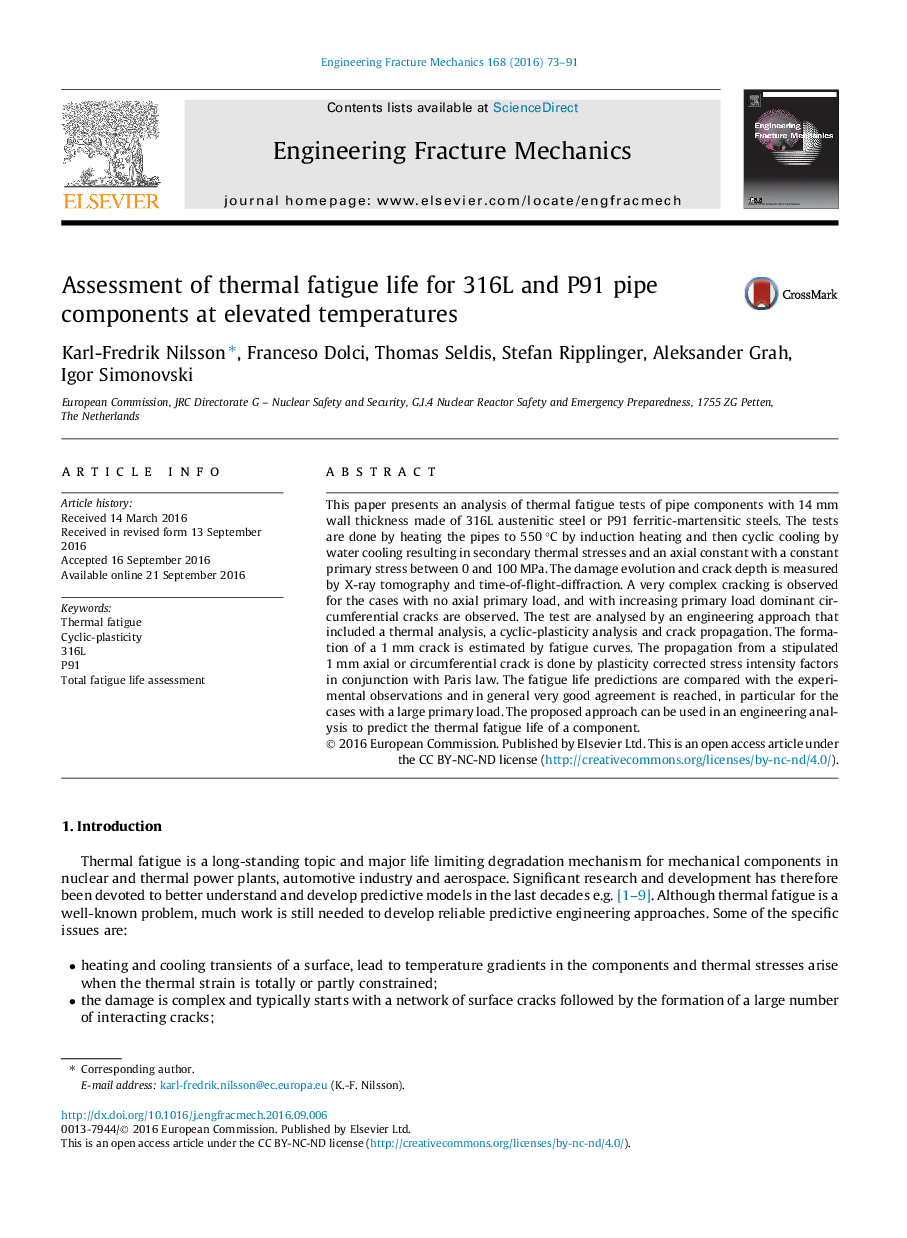| Article ID | Journal | Published Year | Pages | File Type |
|---|---|---|---|---|
| 5014204 | Engineering Fracture Mechanics | 2016 | 19 Pages |
This paper presents an analysis of thermal fatigue tests of pipe components with 14 mm wall thickness made of 316L austenitic steel or P91 ferritic-martensitic steels. The tests are done by heating the pipes to 550 °C by induction heating and then cyclic cooling by water cooling resulting in secondary thermal stresses and an axial constant with a constant primary stress between 0 and 100 MPa. The damage evolution and crack depth is measured by X-ray tomography and time-of-flight-diffraction. A very complex cracking is observed for the cases with no axial primary load, and with increasing primary load dominant circumferential cracks are observed. The test are analysed by an engineering approach that included a thermal analysis, a cyclic-plasticity analysis and crack propagation. The formation of a 1 mm crack is estimated by fatigue curves. The propagation from a stipulated 1 mm axial or circumferential crack is done by plasticity corrected stress intensity factors in conjunction with Paris law. The fatigue life predictions are compared with the experimental observations and in general very good agreement is reached, in particular for the cases with a large primary load. The proposed approach can be used in an engineering analysis to predict the thermal fatigue life of a component.
